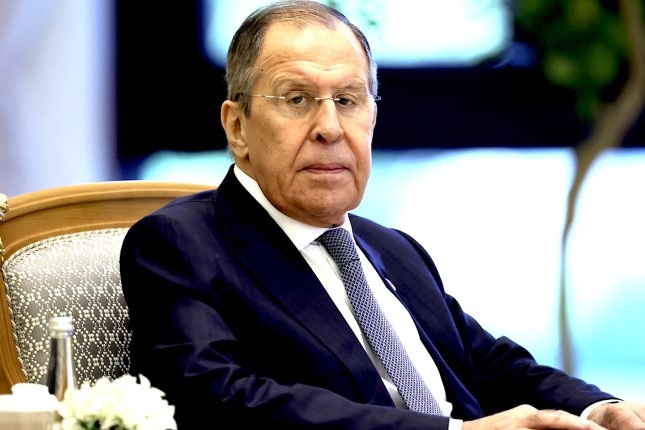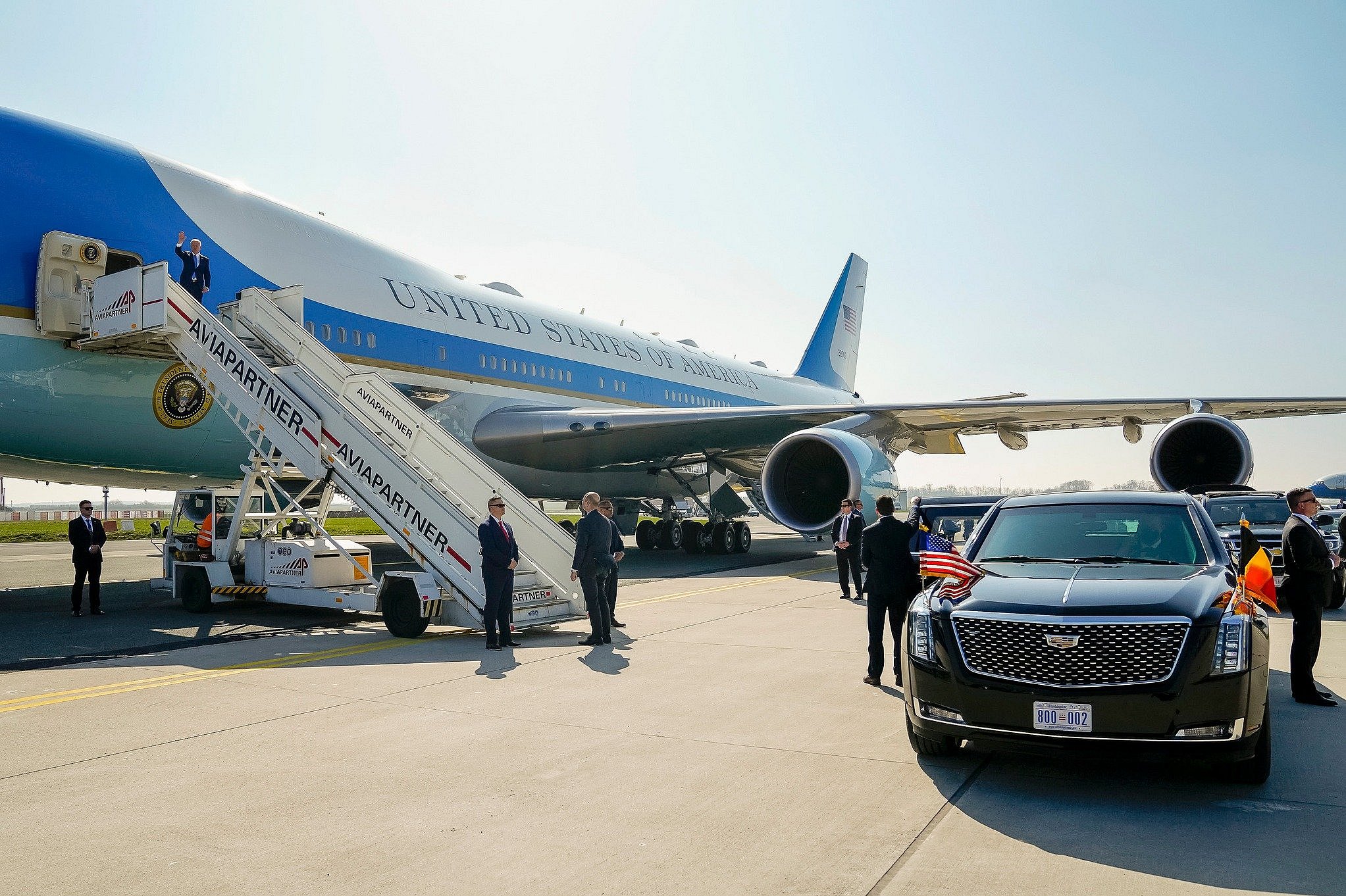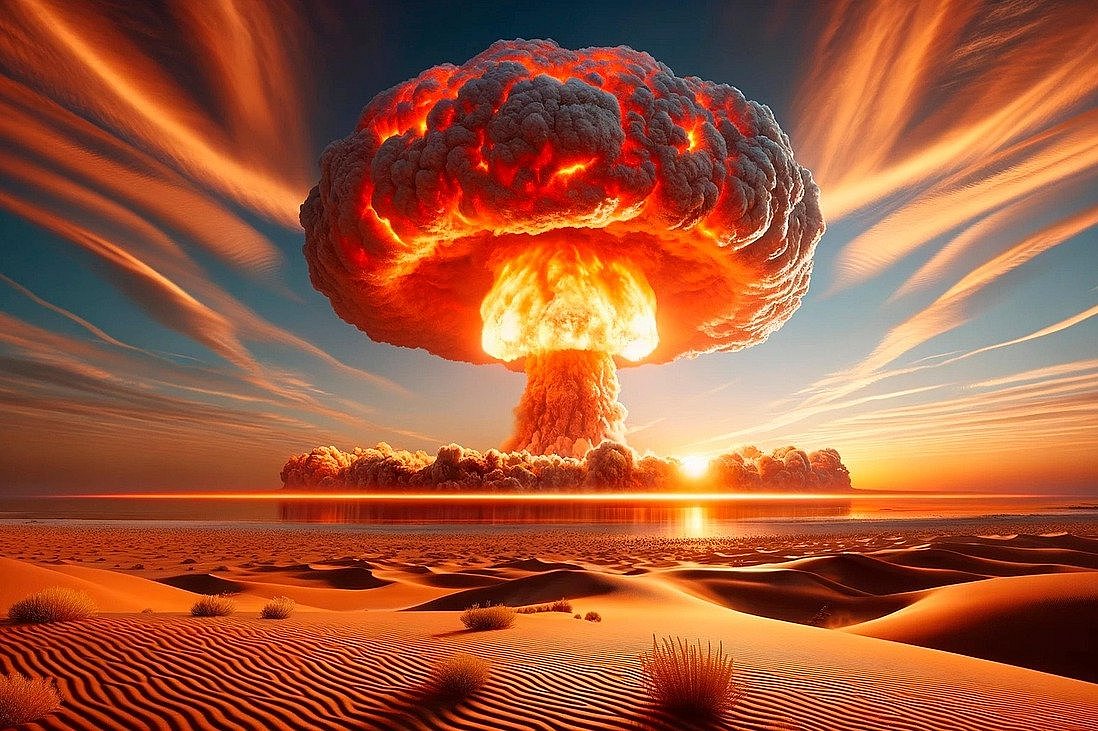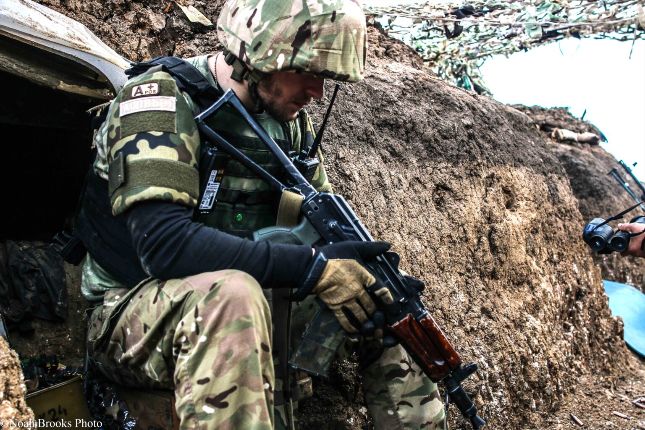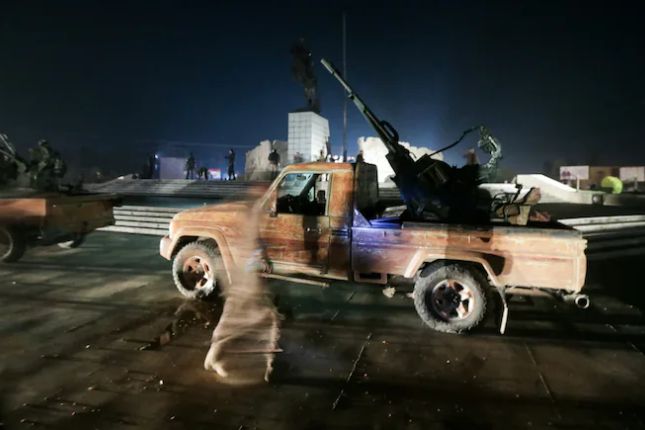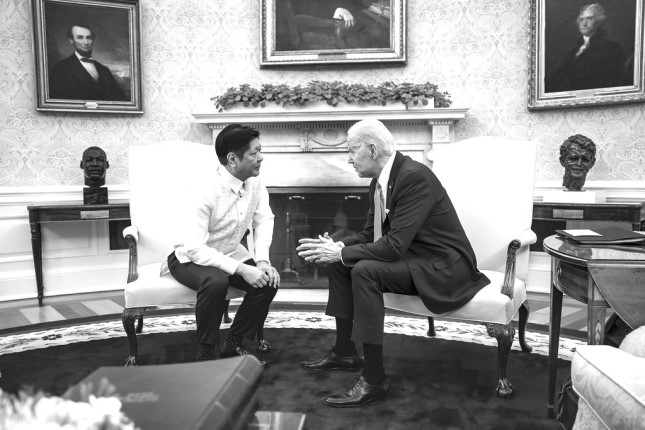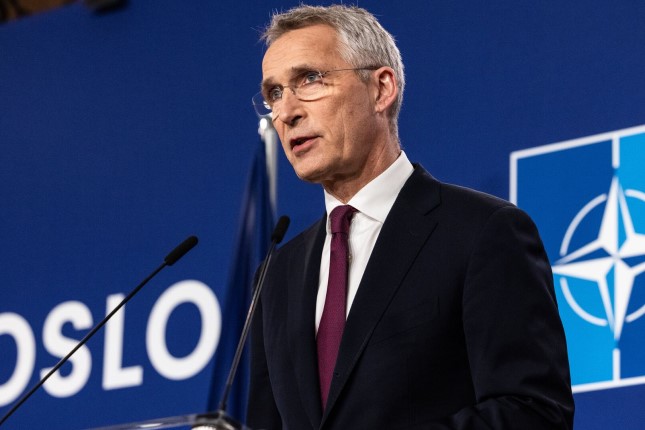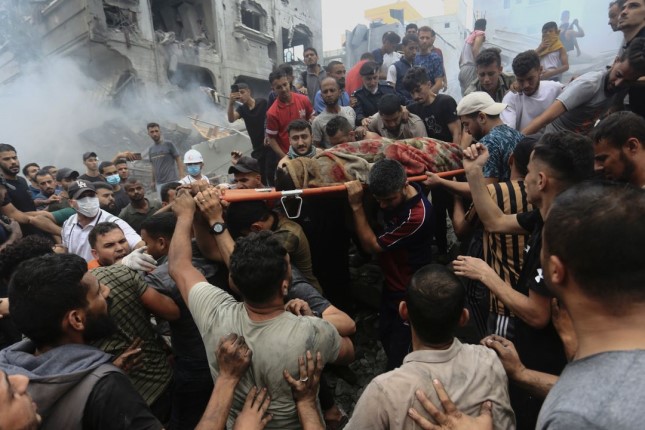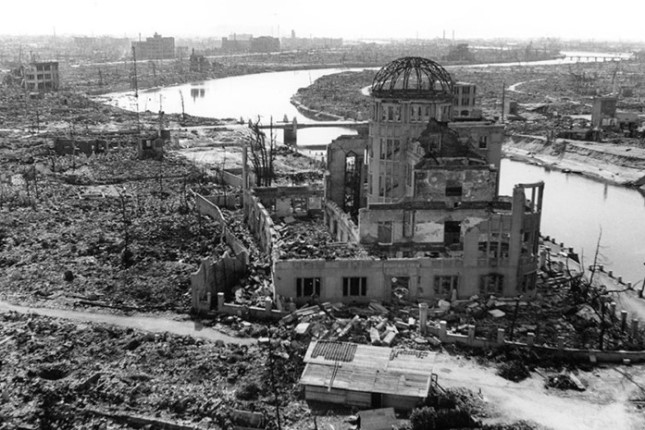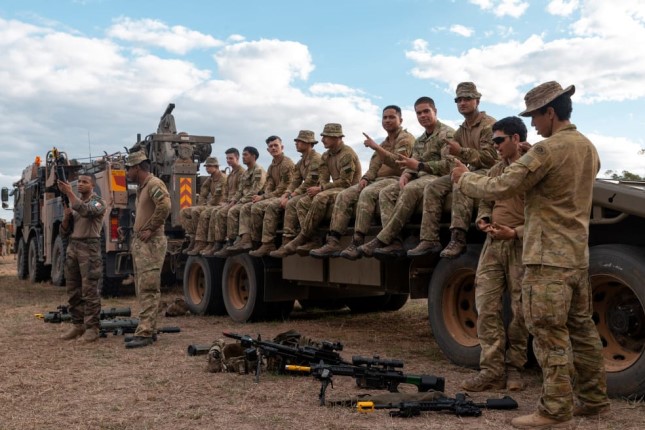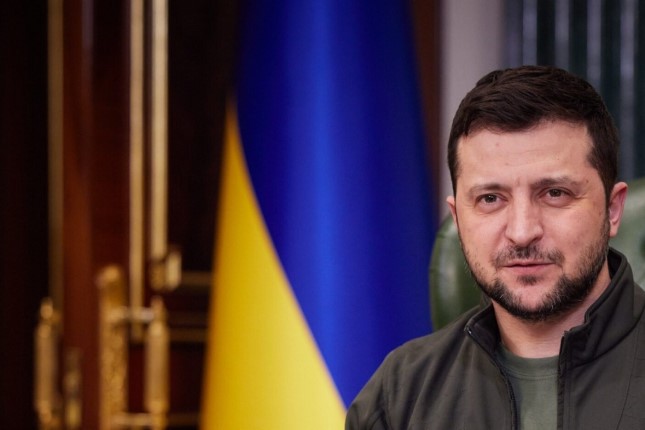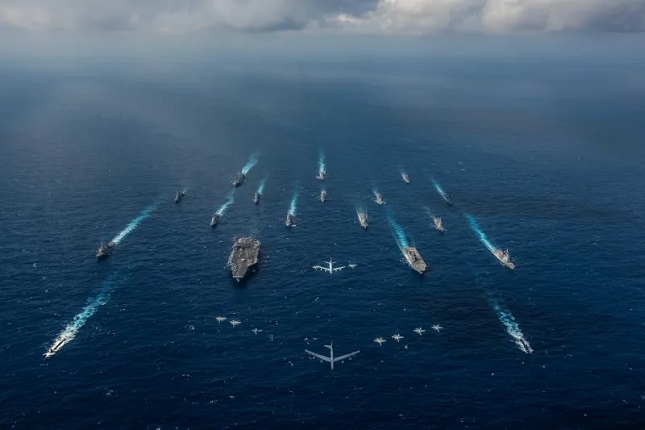Sergei Lavrov, Russia’s steady, able, intellectually quick foreign minister, last week held one of those wide-ranging press conferences he and his boss favor. Lavrov’s remarks are subtly delivered but of a significance we must not miss.
Tass published a useful summary of them on Jan. 18.
Here are a few of Lavrov’s pithier remarks. The first of these appeared under the subhead, “On friends of Russia.” I take the liberty of minorly cleaning up the English translation: “Relations between Russia and China currently experience the best period of their centuries-long history. Their relations are firmer, more reliable, and more advanced than a military union as we understood these in the previous Cold War-era. In all cases, the interests of Russia and China reach a common denominator after negotiation, and this is an example for resolution of any issues by any other participants in global communication. Relations of particularly privileged cooperation with India develop gradually. Russia also takes relations with African states to a truly strategic level. It develops relations with the Latin American continent. Russia’s close circle also includes Iran, Turkey, Saudi Arabia, the U.A.E. and Qatar.”
Here is Lavrov on the BRICS–Plus group, which expanded last year from its original members, Brazil, Russia, India, China and South Africa: “About 30 states are interested in rapprochement with BRICS. This association has a great future. Being a superregional global structure, BRICS symbolizes the diversity of a multipolar world.”
At one point Lavrov turned, inevitably, to the conflict in Ukraine: “It is not up to Ukraine to decide when to stop and when to talk seriously about realistic preconditions for the end of this conflict. It is necessary to talk with the West about it. The West wants no constructive resolution that would take Russia’s legitimate concerns into account. This is indicated by incitement and coercion of Kiev for increasingly aggressive use of long-range weapons to strike Crimea, in order to make it unsuitable for life, as well as deep into Russian territory, and not only incitement, but the handover of corresponding weapons as well.”
Three practical questions as Russia’s top diplomat interpreted them in a review of “Russia’s diplomatic work in 2023,” as TASS put it. This is fine as it is, but Lavrov’s comments are a case of the subtext being vastly larger than the text. Russia’s objective in 2024 — this is TASS again — is “to remove any dependence on the West.”
I am sure you know the old adage, derived from an 18th century Christian hymn, “God moves in mysterious ways.” So does history. Let us, then, consider this history in brief. Lavrov’s press conference brims with implied references to it.
Notions of Progress
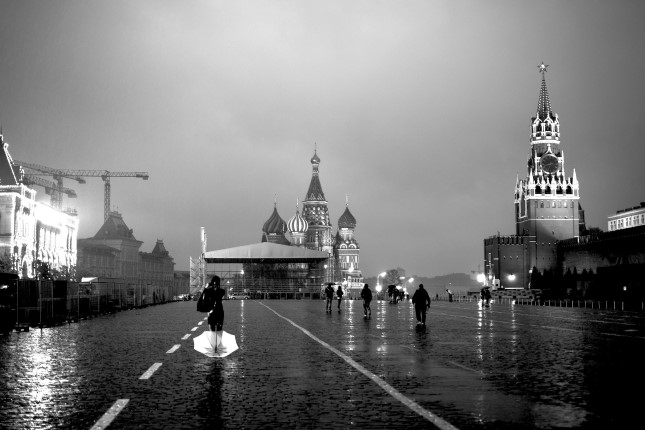
Red Square, Moscow, 2015. Photo: Misha Sokolnikov / Flickr / CC BY-ND 2.0.
Russia is considered among the scholars what is called “a late developer.” Such nations are so named because they were a century or more behind the West as it entered the age of scientific and industrial advances and then — regrettably enough, I would say — on to the Age of Materialism. Railroads, telegraph lines, steamships, photography, Bessemer steel, and all the rest: Late developers, lagging in these technologies, looked Westward with envy well-mixed with a felt inferiority.
The premier case of late development is Japan. Among Russians as among the Japanese, the condition of being “behind” produced profound confusion as to identity and their place in the modern world. This confusion is still easily detected. At its core lie two very consequential misunderstandings.
One, there is the fraudulent Western notion of “progress” as this became an orthodoxy from the mid–19th century onward. I say “fraudulent” because history does not advance in anything like a straight line, and progress is measured in the West strictly according to material advances. In matters of ethos, humaneness, equality, environmental stewardship, the settling of conflicts — of the human spirit altogether — the West remains more primitive than many “primitive” societies.
Two, and the larger point here, from the 19th century onward, there was only one way to modernize. All colonized people who chose the capitalist road understood the imperative this way: modernization = Westernization. All of a sudden, to advance, to make a future in the modern world, meant to repudiate who one was and imitate being someone else.
How hard is it to imagine the deep disturbances and distortions — at bottom psychological but also political, social, economic, and cultural — that arose in consequence of this misapprehension? I count the equation of modernizing with Westernizing, as measured by the extravagant damage it did, among the gravest errors of the late 19th century and all through the 20th to our time.
Russia has spent nearly three centuries in this state of turmoil and — maybe not too strong a term — disorientation. Periods of orthodox conservatism have been followed by cycles of Westward-looking liberalization, this followed by a return to previously abandoned traditions, which have included over many years a return to reaction and a new valorization of one or another kind of nativism and nationalism.
A New Course
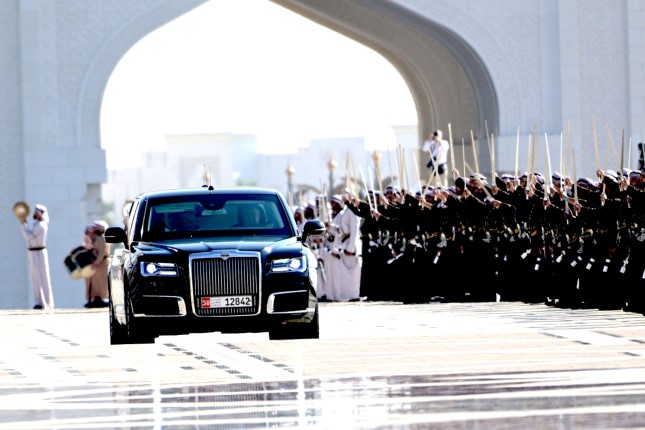
U.A.E. welcoming ceremony for Russian President Vladimir Putin, Abu Dhabi, Dec. 6, 2023. Photo: President of Russia.
There is another factor to consider. From the 1830s onward to NATO’s post–Cold War expansions, the horrific U.S.–led program to turn the Russian Federation into a capitalist greedfest after the Soviet Union’s collapse, and now the conflict in Ukraine, Russia’s struggle to understand itself has been accompanied by more or less incessant Western efforts decisively to reshape Russia in the West’s image.
We cannot understand Lavrov’s press conference, or many, many of the things Vladimir Putin has said these past few years, without this historical context. In so many words, all of them well-chosen, the foreign minister and the president have announced that Russia will no longer look Westward as it advances into the 21st century. Modernization will no longer mean Westernization.
It would be altogether impossible to overstate the historical magnitude of what Russia has set as its new course. We live in the most interesting times, to put this point another way — even if most of us, mesmerized by the propaganda of eternal Western superiority, cannot see five feet in front of us as the most significant events of our time unfold.
Many things will now fall into place. Lavrov, in enumerating the members of Russia’s “close circle,” describes, a couple of years on, the “new world order” the Chinese frequently reference.
The 5,000–word charter Putin and Chinese President Xi Jinping made public two years ago next month, “Joint Statement of the Russian Federation and the People’s Republic of China on International Relations Entering a New Era and the Global Sustainable Development,” can be understood now as what your columnist called it at the time: the most important political document to be issued so far in the 21st century.
Gordon Hahn, the accomplished scholar of Russia and Eurasia, last week offered a superb history of Russia’s relations with the West during an appearance last week on The Duran, the daily web program produced by Alexander Mercouris and (in this case) Glenn Diesen. In the course of this long, rich interview Hahn notes, “Putin, as he has stated over and over again now recently, the [Russian] elites routinely demonstrate that they do not trust anyone in the West anymore.” He elaborates: “For Russia, it looks now, the West is no longer its ‘Other.’… Russia has always identified itself, motivated itself, driven itself in relation to Europe. Now Putin is turning away from that. He said that we are no longer to define ourselves, look at ourselves, through the European prism. For now, we will put all our eggs in one basket, and that is Eurasia…. This close bilateral relationship, of Europe as Russia’s Other, is ending, and therefore the cycle [from conservatism to Westernization and back] is probably ending.”
This moment has been a long time coming. A shallow peruse of the past brings us back to 1990–91, when Michail Gorbachev accepted Washington’s assurance — without a signed document, imprudently — that NATO would not expand eastward from the reunified Germany.
As is well-known, 30 years of betrayals and diplomatic dishonesty followed as Moscow sought a new security architecture that would provide the Russian Federation a place in that “common European home” for which Gorbachev longed.
“I am extremely pessimistic,” Hahn says of the outlook for U.S.–Russian relations. “I can’t see that, even with an agreement between Russia and Ukraine, the West will cease trying to expand NATO. They will try to repeat the same scenario unless something changes in the West itself, in Washington.”
The world turns, even as the West declines or is incapable of turning with it. The teaser on The Duran’s segment with Gordon Hahn reads, “Russia ends 300 years of west-centric foreign policy.” This is big. It rarely gets bigger. History’s mysterious ways lie before us.
Main photo: Russian Foreign Minister Sergei Lavrov, during Russia-UAE talks in December 2023 © Sergei Savostyanov / TASS.
Source: Consortium News.
